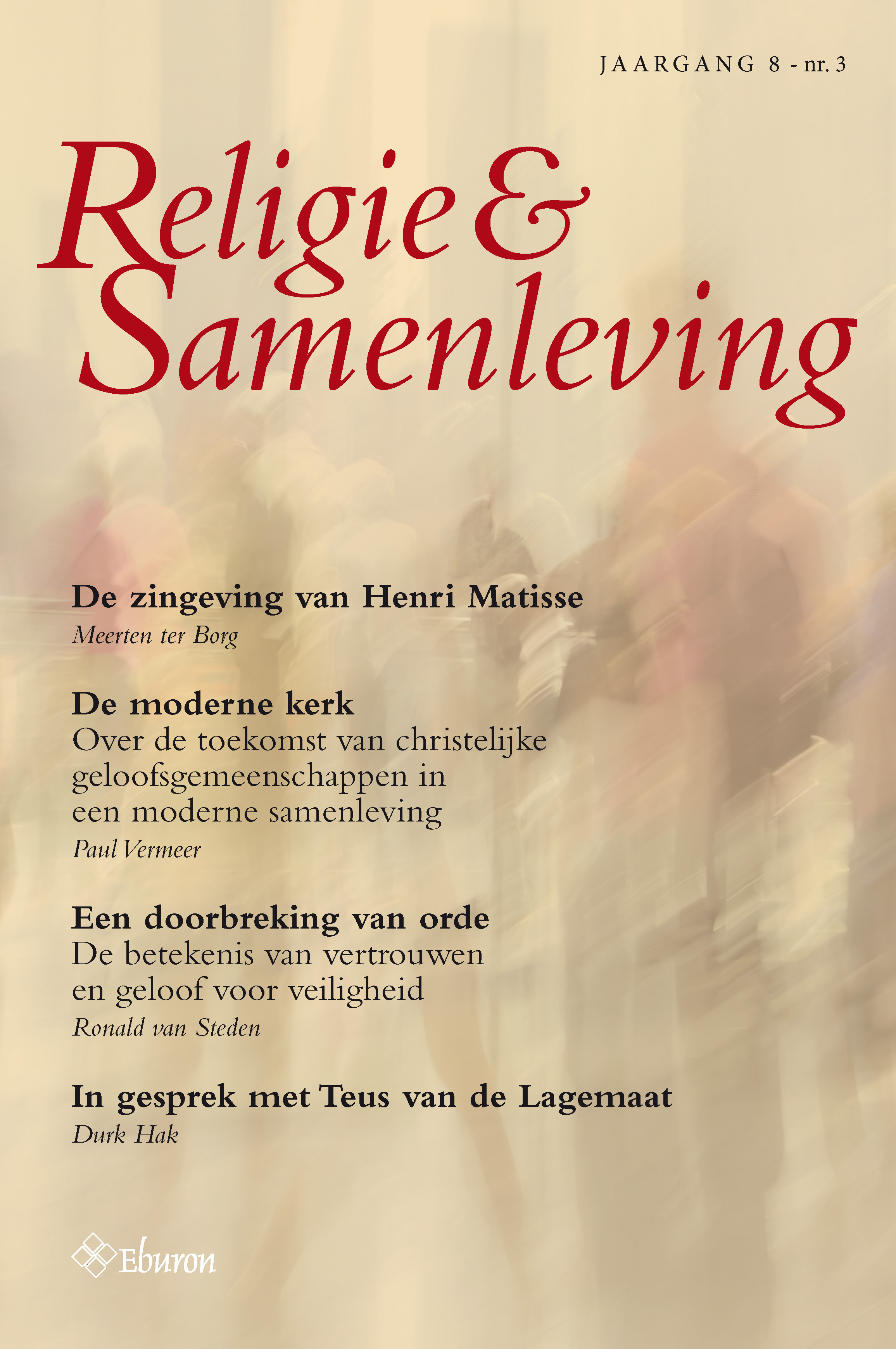De moderne kerk
Over de toekomst van christelijke geloofsgemeenschappen in een moderne samenleving
DOI:
https://doi.org/10.54195/RS.12693Samenvatting
This paper tries to identify the characteristics of viable religious communities in modern, Western society. Developments regarding church membership and church attendance in the Netherlands and the United States show, that especially liberal and mainline communities are affected by religious disaffiliation, while conservative and orthodox communities are far better able to resist the secularizing forces of modernity. This difference is explained in terms of strictness and the adoption of a more absolutist religious stance. Thus it is argued, that viable religious communities in the West will eventually become more sect-like. That is to say, these communities focus on establishing strong social bonds between their members, reject common ‘Western’ values like tolerance and relativism and emphasize the personalistic aspects of faith. These sect-like characteristics result in strong religious communities that consciously exist in a high degree of tension with the wider social environment and that, in this way, are able to recruit and preserve a small but loyal group of followers.




